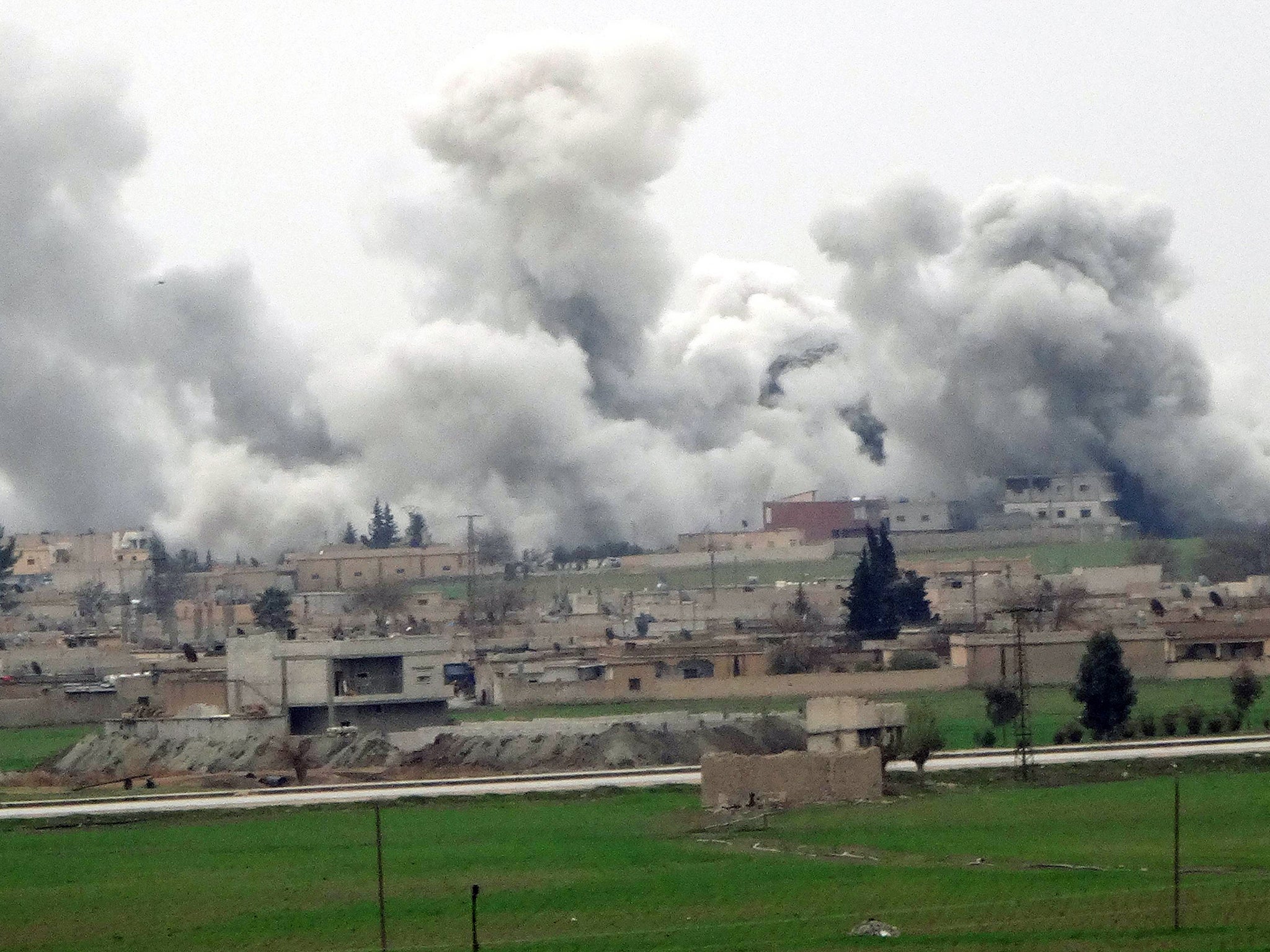Saudi Arabia trying to destroy fragile truce in Syria, warns Assad regime
UN chief Ban Ki-moon said there been some incidents but the ceasefire was generally holding

Your support helps us to tell the story
From reproductive rights to climate change to Big Tech, The Independent is on the ground when the story is developing. Whether it's investigating the financials of Elon Musk's pro-Trump PAC or producing our latest documentary, 'The A Word', which shines a light on the American women fighting for reproductive rights, we know how important it is to parse out the facts from the messaging.
At such a critical moment in US history, we need reporters on the ground. Your donation allows us to keep sending journalists to speak to both sides of the story.
The Independent is trusted by Americans across the entire political spectrum. And unlike many other quality news outlets, we choose not to lock Americans out of our reporting and analysis with paywalls. We believe quality journalism should be available to everyone, paid for by those who can afford it.
Your support makes all the difference.The Syrian regime has accused Saudi Arabia of trying to undermine peace efforts as the fragile ceasefire in the war-torn region enters its third day.
Bashar al-Assad’s government said the Saudi kingdom’s proposal of “plan B” if the truce fails is an attempt to thwart the cessation of combat operations.
The unstable peace has, so far, significantly reduced violence across the country enabling some aid to be delivered to desperate civilians in besieged towns.
“What Adel al-Jubeir [Saudi foreign minister] says….about a plan B regarding the current developments in Syria is merely a delusion in the mind of the Saudi regime,” a Syrian foreign ministry official was quoted as saying in a statement on state media.
"Jubeir's statements are ... an attempt to thwart the cessation of combat operations," it added.
On the second day of the ceasefire – brokered by negotiations between Moscow and Washington to halt fighting in the region – Jubeir said that the Syrian regime and its ally Russia had violated the truce, and that there would be an alternative plan if it became apparent Damascus and its allies were not serious about the ceasefire. He did not deliberate on any of the details with a so-called “plan B”.
An international task force was due to meet on Monday in a bid to shore up Syria's ceasefire, as the United Nations scrambled to deliver aid to thousands of besieged civilians. The task force, co-chaired by Moscow and Washington, will evaluate allegations of a range of breaches, a Western diplomat said.
At the weekend, key regime backer Russia traded accusations with the main opposition grouping, the High Negotiations Committee, over truce violations. French Foreign Minister Jean-Marc Ayrault said that the allegations "must all of course be verified," but that his government "would be vigilant about [the truce's] concrete application."
UN chief Ban Ki-moon said there been some incidents but the ceasefire was generally holding. He told reporters in Geneva: "As of now I can tell you that by and large the cessation of hostilities is holding even though we have experienced some incidents.”
Staffan de Mistura, the United Nations’ mediator responsible for Syria, said he intends to reconvene peace talks between the Syrian government and opposition on March 7, provided the halt in fighting largely holds and allows for greater delivery of humanitarian relief.
The truce is meant to open the way for aid to more than 480,000 Syrians living in areas currently besieged by government forces, rebels or jihadists. A convoy carrying sanitation supplies and blankets was due to head to the town of Moadamiyet al-Sham, surrounded by regime forces south of Damascus, on Monday, a UN source told AFP news agency.
Meanwhile, the deputy Russian Foreign Minister Sergei Ryabkov has aired the view that Syria could become a federal state if the model works in the country.
"If as a result of talks, consultations and discussions on Syria's future state order ... they come to an opinion that namely this [federal] model will work to serve the task of preserving Syria as a united, secular, independent and sovereign nation, then who will object to this?" Mr Ryabkov said.
After five years of civil war that has killed 250,000 people and driven some 11 million from their homes, Syria's territory is already effectively split between various parties, including the government and its allies, Western-backed Kurds, opposition groups and Islamic State militants.
Additional reporting by Reuters
Join our commenting forum
Join thought-provoking conversations, follow other Independent readers and see their replies
Comments